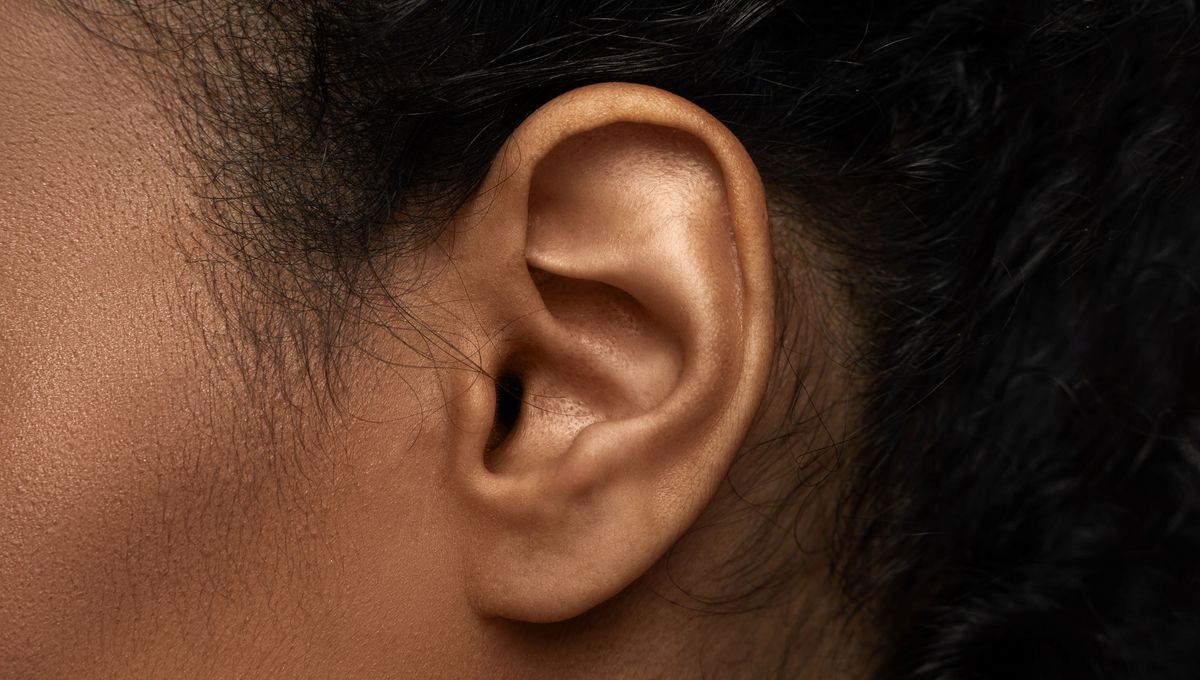
Thought to be pretty redundant in modern humans outside of wiggling our ears for a giggle, new research has revealed that certain ear muscles that let animals and our ancient ancestors move their ears to focus on sounds actually still respond to how intently we listen to a sound or the direction it’s coming from.
ADVERTISEMENT GO AD FREE
Our auricular muscles are vestigial, remaining part of our bodies while losing their function – moving the pinna, the outer ear – as evolution took its course. “The exact reason these became vestigial is difficult to tell, as our ancestors lost this ability [to pull our ears up and back] about 25 million years ago,” first author of the study, Andreas Schröer of Saarland University, said in a statement. “One possible explanation could be that the evolutionary pressure to move the ears ceased because we became much more proficient with our visual and vocal systems.”
The team set up an experiment using electrodes on the skin to determine how the superior and posterior auricular muscles reacted to listening tasks of varying direction and difficulty, writing in their paper that “they appear to be the most likely candidates to be involved in an attempt of the vestigial pinna-orienting system to reorient or reshape the pinna during effortful listening.” This system has been referred to as a “neural fossil”.
The 20 study participants sat in a cubicle made of sound-absorbing fabric and put their heads on a chin rest to stop them from moving their heads. They were asked to concentrate on an audiobook with a female narrator (and were quizzed afterward to make sure they were actually paying attention), being challenged with three levels of difficulty that the researchers liken to trying to listen to someone in an increasingly busy, noisy restaurant (reminiscent of the cocktail party problem).
As a distraction played from the same speaker, the researchers used two different podcasts: one with a female speaker with a similar voice to the audiobook narrator, and the other having a male speaker with a very different voice. In the easiest level, the male-speaker podcast was played at the same time as the audiobook, but 10 decibels softer than the audiobook. For the medium difficulty, the female-speaker podcast was added to the mix, both podcasts being 2 decibels softer. Finally, in the hardest test, the audiobook was 2 decibels softer than the two distraction podcasts. The speakers were either placed directly in front of the participants or directly behind them.
The results revealed that the superior auricular muscles (SAM) were more active in the most difficult listening test versus the easier two, which were not significantly different from each other. They write in the paper that this “provides evidence that SAM activity can be an indicator for increased levels of effortful listening.”
ADVERTISEMENT GO AD FREE
The posterior auricular muscles were more active when the audio was played directly behind the participants. In combination with prior research, “This could lead us to hypothesize that if the eye gaze cannot shift toward a stimulus, the vestigial pinna–orienting may activate the [posterior auricular muscles] to enhance the participant’s ability to focus on these sounds,” the authors write.
However, they caution that “it is currently not known if they are strong enough to achieve an actual benefit.” Instead, they say that the activity of these muscles could be useful for cognitive neuroscience research and human-machine interaction, as well as testing how effective hearing aids are at lowering the amount of effort used to listen.
“Almost nobody [in the study] had the ability to voluntarily move their ears, so our results are not related to a person’s ability to do this,” Schröer told The Guardian. “The ear movements that could be generated by the signals we have recorded are so minuscule – or even absent – that there is probably no perceivable benefit,” he explained, “So we think that this vestigial auriculumotor system is ‘trying its best’, but probably doesn’t achieve much.”
God loves a trier.
ADVERTISEMENT GO AD FREE
The study is published in the journal Frontiers in Neuroscience.
Source Link: Despite Being Pretty Much Useless, These Ear-Wiggling Muscles Still Attempt To Work